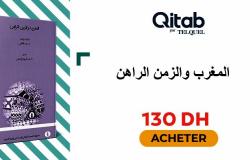Faced with the accelerated recomposition of international positions on the question of Moroccan Sahara, Algeria, the main “supporter” of Sahrawi separatism, seems destabilized by a new diplomatic environment marked by the strengthening of support for the Moroccan autonomy plan, especially on the part of the United States.
The confirmation by Washington of his firm support on the Moroccan initiative, presented as the only credible and realistic solution to close this regional dispute, put Algiers in a delicate posture, as evidenced by the measured – even erased – of the Algerian Ministry of Foreign Affairs. This contrast is all the more significant since the similar positions expressed by European capitals like Paris or Madrid had previously aroused virulent responses from Algiers. This unusual restraint reveals, according to analysts, the difficulty of Algeria in thwarting the strategic choices of a leading power like the United States, of which it fears diplomatic reprisals.
This ambiguity distinguished itself in the speech of the Algerian Minister of Foreign Affairs, Ahmed Attaf, on the occasion of the meeting of the Algerian-Ethiopian mixed commission, during which he denounced ” Recent, blatant and provocative attempts to deprive the Sahrawi people of their right to self -determination – Barely veiled allusion to American recognition of Morocco’s sovereignty over the Sahara.
For Chawki Benzehra, political activist and Algerian opponent, “ The Algerian regime is subject to increasing diplomatic pressures as to its rigid position on the Sahara file, in particular on the part of the American administration which has just reaffirmed its membership in the autonomy plan proposed by Rabat ».
He specifies that ” This new deal has unarmed Algiers, as illustrated by the laconic and prudent press release published by his diplomacy, in total lade with the usually virulent tone reserved for French or Spanish statements ».
According to him, this prudence reflects the fear of an American hardening, in particular in a context where voices rise to the United States to claim the inscription of the Polisario on the black list of terrorist organizations-a particularly sensitive hypothesis for Algiers, as historical support of the movement.
In a statement to Hespress, Benzahra stresses that “The position of Algeria is today overhanging with regional and international dynamics, which converge on the recognition of Moroccan sovereignty over the Sahara and reject any separatist option or construction of a fictional state “, Adding that” This development strengthens the diplomatic isolation of Algiers and brings a serious blow to its credibility on the international scene, already weakened by a foreign policy perceived as destabilizing ».
For his part, the researcher in international relations and international law, Jaouad El Kassmi, attributes the difference in tone of Algiers to geostrategic calculations. “” Algeria adopts a modulated posture according to the geopolitical weight of its interlocutors. If it allows itself an aggressive rhetoric in front of France or Spain, it is because it thinks of having pressure levers – especially energetic or migratory. On the other hand, its relations with the United States are more limited, and a frontal confrontation with Washington would have potentially disastrous consequences ».
He specifies that ” The Algerian management, aware of its inability to influence the American position, opts for a caution diplomacy in order to maintain open communication channels with the American administration, in the hope of neutralizing or alleviating its support for the Moroccanity of the Sahara. It particularly fears a possible qualification of the Polisario as a terrorist entity, a scenario which would directly tarnish the image of Algeria as a promoter of a non -state armed group».








